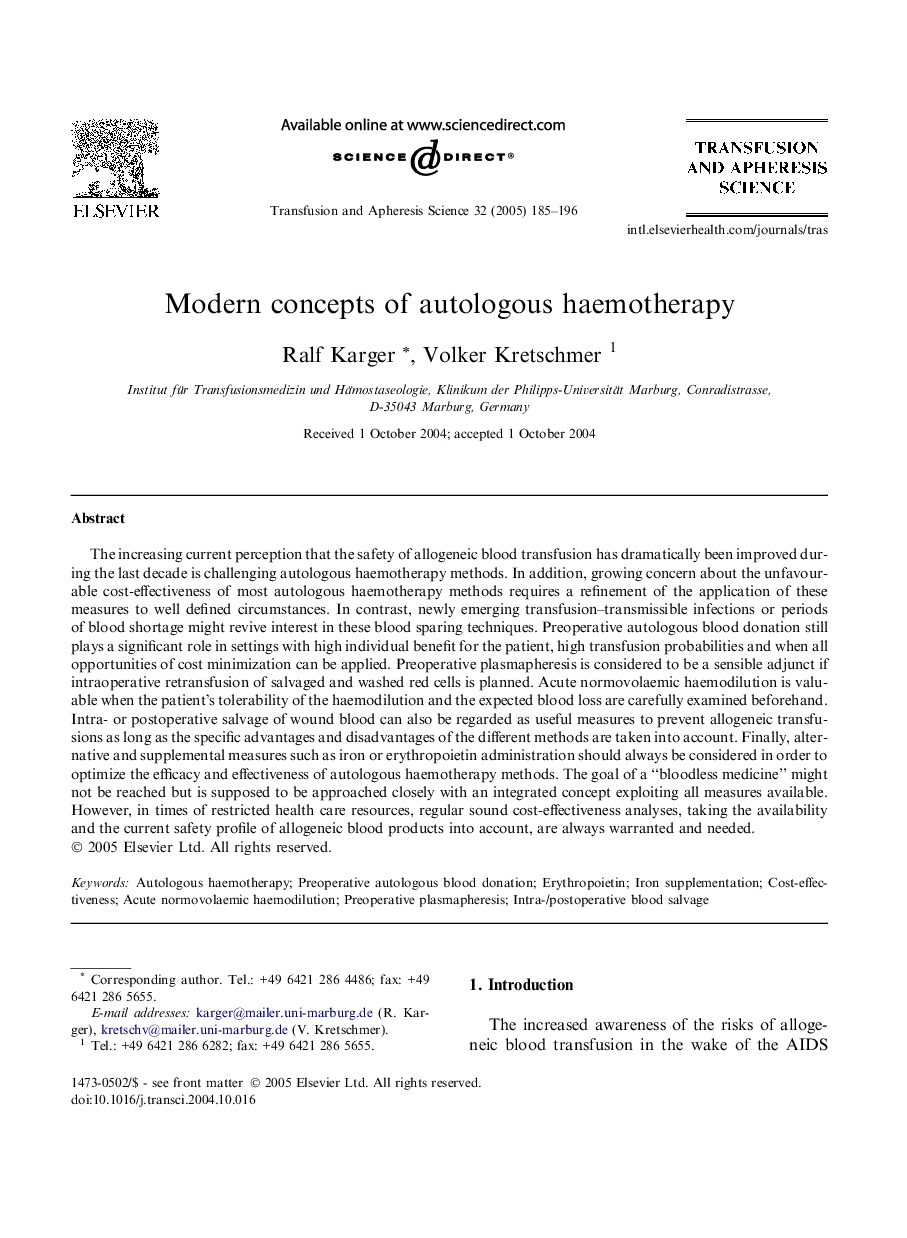| Article ID | Journal | Published Year | Pages | File Type |
|---|---|---|---|---|
| 9258870 | Transfusion and Apheresis Science | 2005 | 12 Pages |
Abstract
The increasing current perception that the safety of allogeneic blood transfusion has dramatically been improved during the last decade is challenging autologous haemotherapy methods. In addition, growing concern about the unfavourable cost-effectiveness of most autologous haemotherapy methods requires a refinement of the application of these measures to well defined circumstances. In contrast, newly emerging transfusion-transmissible infections or periods of blood shortage might revive interest in these blood sparing techniques. Preoperative autologous blood donation still plays a significant role in settings with high individual benefit for the patient, high transfusion probabilities and when all opportunities of cost minimization can be applied. Preoperative plasmapheresis is considered to be a sensible adjunct if intraoperative retransfusion of salvaged and washed red cells is planned. Acute normovolaemic haemodilution is valuable when the patient's tolerability of the haemodilution and the expected blood loss are carefully examined beforehand. Intra- or postoperative salvage of wound blood can also be regarded as useful measures to prevent allogeneic transfusions as long as the specific advantages and disadvantages of the different methods are taken into account. Finally, alternative and supplemental measures such as iron or erythropoietin administration should always be considered in order to optimize the efficacy and effectiveness of autologous haemotherapy methods. The goal of a “bloodless medicine” might not be reached but is supposed to be approached closely with an integrated concept exploiting all measures available. However, in times of restricted health care resources, regular sound cost-effectiveness analyses, taking the availability and the current safety profile of allogeneic blood products into account, are always warranted and needed.
Keywords
Related Topics
Health Sciences
Medicine and Dentistry
Hematology
Authors
Ralf Karger, Volker Kretschmer,
